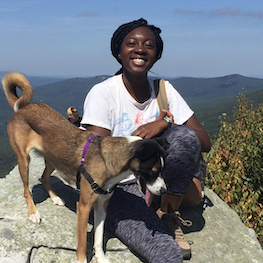Finding inspiration at my first in-person conference in over two years.
 One silver-lining of the pandemic was not getting on an airplane for over two years. I certainly didn’t miss airports, cramming into a seat for hours, or all the other joys of travel. But I did miss seeing colleagues in person and having the back-and-forth with people that just doesn’t happen on video calls.
One silver-lining of the pandemic was not getting on an airplane for over two years. I certainly didn’t miss airports, cramming into a seat for hours, or all the other joys of travel. But I did miss seeing colleagues in person and having the back-and-forth with people that just doesn’t happen on video calls.
So, it was a great pleasure to return to one of my favorite scientific conferences last month. The Society for the Advancement of Biology Education Research (SABER) always provides wonderful nuggets that we can use to improve our teaching tools, either in the short or long-term. In the past, we’ve struck up collaborations testing our Genetic Drift and Bottlenecked Ferrets tutorial (read the paper here), gathered data using Cellular Respiration Explored to test new assessment tools from the AACR Group (paper here), and started our collaboration with researchers at Purdue, Cal State Fullerton, and University of Pennsylvania investigating how students learn to make graphs.
This year’s SABER conference focused on education for all, including those who are historically under-represented in the biological sciences. Among the interesting talks exploring how different populations experience biology education and how to bring more equity to biology teaching, my favorite was an analysis of science communication curriculum for inclusivity. Not only was the talk interesting in how it categorized approaches to science communication (not just my opinion; it won Best Graduate Student Talk at the conference), the speaker, Jasmine Donkoh, is joining SimBio as a postdoc this fall! We’re very excited to work with her.
Assessment & Growth Mindset
A continuing theme of past SABER meetings is finding new ways to assess students in order to improve teaching – of particular interest because our own SABER presentations and current GraphSmarts research is focused on assessment. One of the most interesting talks was by Lisa Limeri at Texas Tech University, who focuses on better ways of measuring growth mindset. In a nutshell, growth mindset is the belief that skill in a subject is due primarily to effort rather than to innate ability. Having a growth mindset is postulated to greatly affect students’ ability to learn. The idea is everywhere – my own kids’ K12 schools emphasize growth mindset – yet the research is surprisingly ambivalent on how much difference a growth mindset makes. Limeri’s thesis suggests that the most common assessments of growth mindset are too generalized to find effects, so she set out to make a better one for undergrad STEM education. Her data shows she may have done so; the new assessment is available from her lab.
Metacognition
Like growth mindset, metacognition also receives a lot of interest as a behavior that helps students learn. Metacognition means exploring how one thinks through a problem. Stephanie Halmo from University of Georgia examined student approaches to difficult biology problems by asking them to think out loud while they solve them. She identified several meta-cognitive strategies students use, among the most novel of which (to me at least) she called ‘self-coaching’. That’s when students encourage themselves when they are stuck, and talk to themselves about what they might do to move forward. For instance, they might say “I don’t know what flux is. That’s okay. Let me just guess it means this, and see where that gets me.”
Meetings like SABER inspire the team at SimBio to explore these bigger ideas in our teaching tools. Can we scaffold difficult activities to promote a growth mindset? Or in modules that challenge students with problem-solving like our in-beta Gene Regulation Explored, can we structure questions or feedback to encourage more metacognition when students get stuck? These ideas are what keep us excited about our work!






 Mentors Honored
Mentors Honored

